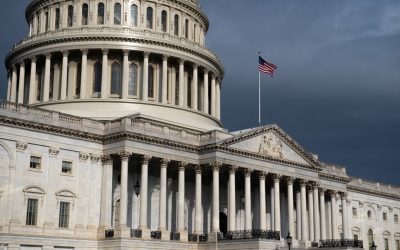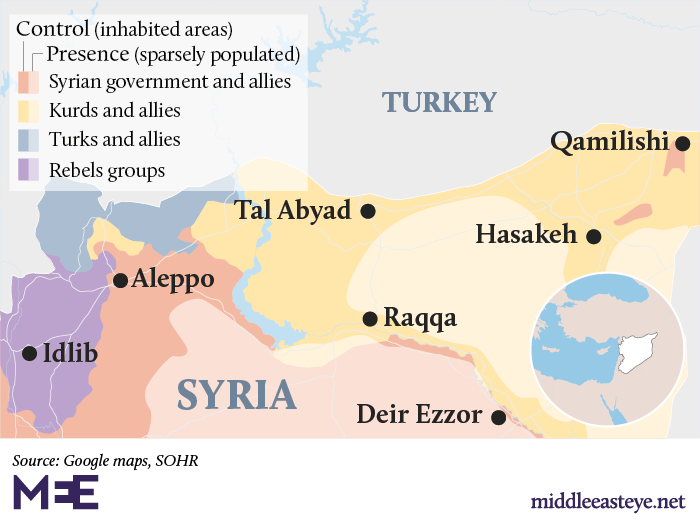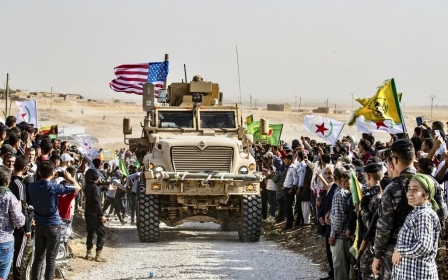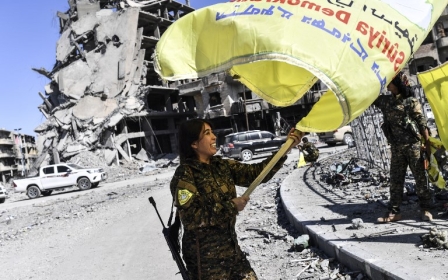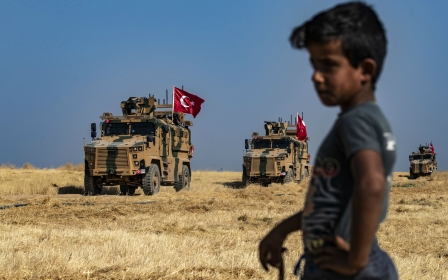Trump withdraws US troops from northern Syria ahead of Turkish offensive
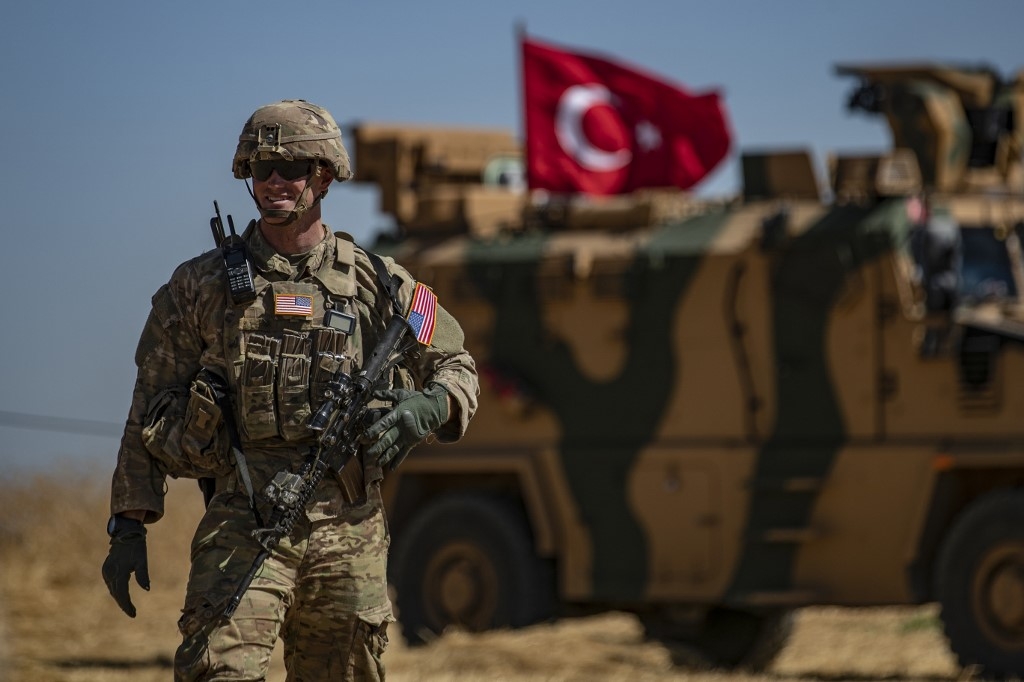
A Turkish offensive in Kurdish-held northern Syria looked inevitable on Monday, as the United States began withdrawing its forces from the area.
US President Donald Trump on Sunday gave his blessing to a Turkish operation targeting the US' erstwhile Kurdish partners, saying the United States will stand aside as Ankara launches its "long-planned" operation.
The move, which follows a conversation between Trump and his Turkish counterpart, Recep Tayyip Erdogan, marks a major shift in US policy.
By clearing the way for a Turkish operation, Washington is effectively abandoning a group that has been a crucial US partner since 2014 in the battle against the Islamic State (IS) group.
'United States forces, having defeated the ISIS territorial 'Caliphate', will no longer be in the immediate area'
- White House statement
Turkey sees the Kurdish YPG militia, which is a leading component of the US-backed Syrian Defence Forces (SDF), as an extension of its outlawed Kurdistan People's Party (PKK) militant group, and has sought to force it from the Turkish border.
New MEE newsletter: Jerusalem Dispatch
Sign up to get the latest insights and analysis on Israel-Palestine, alongside Turkey Unpacked and other MEE newsletters
"Turkey will soon be moving forward with its long-planned operation into northern Syria," a White House statement issued late on Sunday said.
"The United States Armed Forces will not support or be involved in the operation, and United States forces, having defeated the ISIS territorial 'Caliphate', will no longer be in the immediate area," it added, using another acronym for IS.
On Monday morning, the SDF-linked Hawar news agency reported that US forces had begun pulling back from the border area towns of Sere Kaniye - known in Arabic as Ras al-Ain - and Tal Abyad around dawn.
Turkish Foreign Minister Mevlut Cavusoglu said on Twitter that Turkey would "ensure our country's existence and security by clearing terrorists from this region".
"From the start of the Syria war, we have supported that country's territorial integrity and will continue to do so from now on," Cavusoglu wrote. "We will contribute to bring serenity, peace and stability to Syria."
Signs Ankara has been gearing up for an assault have been accumulating for weeks.
Turkey's military has been redeploying elite units and armoured vehicles to border towns as dozens of medics have been placed near the border over the past month to support any possible offensive.
And on Friday, Turkey-backed Syrian rebel groups announced a broad merger and voiced their support for any offensive. It is expected that Turkey will heavily rely on its Syrian rebel allies in the assault.
Iran's foreign minister on Monday said the United States was an "irrelevant occupier in Syria" and called for respecting Syrian territorial integrity.
Mohammad Javad Zarif tweeted that it was "futile to seek [US] permission or rely on it for security".
The US announcement has also provoked some domestic criticism.
Senator Lindsey Graham described the reports of the operation as a "disaster in the making."
"Also, if this plan goes forward will introduce Senate resolution opposing and asking for reversal of this decision. Expect it will receive strong bipartisan support," he tweeted.
The move was also criticised by the former Special Presidential Envoy for the Global Coalition to Counter IS, Brett McGurk, who worked with the SDF in fighting the militant group between until 2018:
The looming offensive has thrown into question the fate of camps holding thousands of people suspected of being members of IS.
Kurdish authorities running the camp have previously intimated to Middle East Eye that they may be forced to abandon the camps in order to battle a Turkish assault.
Camps like al-Hol hold thousands of IS members and their families from foreign countries, and the White House statement on Sunday criticised "France, Germany, and other European nations" for their refusal to take back citizens detained in northern Syria.
"Turkey will now be responsible for all ISIS fighters in the area captured over the past two years in the wake of the defeat of the territorial 'Caliphate' by the United States," the statement said.
Erdogan and Trump agreed to meet in Washington next month to discuss creating a buffer zone in northern Syria that would separate Kurdish-held areas from Turkey's border, the Turkish presidency said.
During the call, Erdogan also reportedly expressed his "frustration over the US military and security bureaucracy's failure" to implement an August deal establishing a buffer zone on the Turkish border.
The day before, the Turkish leader had warned that Ankara could launch a cross-border offensive "as soon as today, tomorrow".
'Turkey will now be responsible for all ISIS fighters in the area captured over the past two years'
- US statement
Ankara said it wants to urgently establish a "safe zone" for some of the 3.6 million refugees who fled the war in Syria to Turkey, amid growing public backlash against their presence in the country, and a clamour for them to be returned.
Kurdish authorities in northeast Syria have denounced Erdogan's comments and urged the international community to step in to stop a Turkish assault on Syrian territory under their control.
"We are not expecting the US to protect NE Syria," said SDF spokesperson Mustafa Bali in a tweet.
"But people here are owed an explanation regarding security mechanism deal, destruction of fortifications and failure of US to fulfill their commitments."
The SDF dismantled fortifications and removed heavy weapons close to the Turkish border last month in accordance with a US-Turkish security agreement made in August.
Meanwhile, the SDF warned that any Turkish attack would reverse the gains made against IS and make Syria a zone of permanent conflict.
"Erdogan's threats are aimed to change the security mechanism into a mechanism of death, displace our people and change the stable and secure region into a zone of conflict and permanent war," the SDF said in a series of tweets.
Lina Khatib, Head of the Middle East and North Africa Programme at Chatham House, warned that the move would like push the SDF further into the arms of the Syrian government.
"The US has made it clear that it would not get involved were Turkey to clash with the Kurdish-dominated SDF—this leaves the SDF vulnerable in the event of a Turkish incursion into north-east Syria. Such an incursion would push the SDF southwards, closer to Syrian regime-held areas," she said in a statement.
"The Kurds had already opened channels of communication with the regime, and this would increase their accommodation of its interests.”
Middle East Eye delivers independent and unrivalled coverage and analysis of the Middle East, North Africa and beyond. To learn more about republishing this content and the associated fees, please fill out this form. More about MEE can be found here.


